- Home
- Douglas Niles
MacArthur's War: A Novel of the Invasion of Japan Page 8
MacArthur's War: A Novel of the Invasion of Japan Read online
Page 8
Congressman Carl Vinson of Georgia—known as “the Admiral” throughout Washington political society—was the powerful chairman of the House Naval Affairs and Armed Services Committee. Vinson, whose Georgia district was completely inland, was always proud to claim that there was not a single naval activity in his district, and thus he was completely without parochial interest in his duties on the committee. While Vinson’s support for the navy was absolute, he and King did not always see eye to eye about what constituted the navy’s best interests. On the matter of who would have supreme command in the Pacific, however, King knew he could count on Chairman Vinson.
General George C. Marshall, chief of staff of the United States Army, frequently butted heads with his predecessor and now subordinate. Douglas MacArthur’s tour as army chief of staff in the 1930s had been turbulent, culminating in the cavalry attack against the Bonus Army on the national mall in Washington, DC. Like many of his colleagues, Marshall was glad enough to see MacArthur retire to the Philippines. But MacArthur was often brilliant—and always impossible to ignore. When war had loomed, he had come out of retirement at the request of Philippine President Manuel Quezon to handle the defense of the archipelago.
This latest escapade was a lot, even for MacArthur: exploiting the navy’s bad luck at Midway to advance his own claim for supreme command. What was worse is that Marshall felt compelled to support him. MacArthur was army; that was one factor. He had the public’s attention and support, a mixed blessing but undeniable. And the two-theater strategy was a compromise borne of desperation. It could be made to work; it might even be argued that it had advantages. A single command, though, would be better. And right now, Douglas MacArthur was the better choice.
Well, he had better get busy. He was sure Admiral King was already at work. He snapped the intercom switch. “Could you find out when Secretary Stimson would be able to spare me a few minutes?” he asked.
About an hour later he was entering the secretary of war’s private office. “Thank you for taking the time to see me, Mr. Secretary,” Marshall said.
“General, my time is yours,” Stimson replied. “How may I be of service?”
“It’s about the Hawaiian business, Mr. Secretary,” the army chief of staff answered.
“I thought it might be. How do you think this situation should be handled? I am confident I know Admiral King’s answer already.”
“I’m afraid my answer is no less predictable, Mr. Secretary. At the same time, this interservice conflict is no benefit to anyone except the Japanese. If there’s a peaceful solution, I’m in favor of it.”
“Threatening to saw the baby in half seemed to work for Solomon, if I recall correctly,” Stimson said.
“In this case, unfortunately, half a baby is better than no baby at all,” replied Marshall. “I think we have to continue to divide the baby. If there is a small adjustment in the lines of demarcation, perhaps we can have peace among our own forces and focus our hostility on our real enemies.”
“Do you think MacArthur will settle for a small adjustment? How about Admiral King?”
“Frankly, Mr. Secretary, General MacArthur is right about where the successes in the Pacific have been thus far. He is popular, more so than the navy right now. And as we both know, public perception is important to the war effort.”
“So it is,” Stimson acknowledged. “But General MacArthur recognizes his political advantage right now. Do you think he’ll settle for less than full control?”
“He’ll have to,” Marshall replied. “I’ll support him up to a point, but not to excess. He deserves to have active navy cooperation in his campaign, and needs more support in the Pacific than he’s gotten before. That much is perfectly reasonable and should be supported.”
“Very well, I’ll support that much,” the secretary of war replied. “So you think you’ll rein in Douglas MacArthur’s wild demands? How do you think he’ll react?”
“Oh, I’m sure there will be some heated language, but in the end, he’ll have to see reason.”
“You’re right, I imagine,” replied Stimson. “But I wonder—”
“Wonder what, Mr. Secretary?”
“I wonder if this wasn’t the outcome he was banking on all along.”
• TUESDAY, 30 JUNE 1942 •
CINCPAC HEADQUARTERS, PEARL HARBOR, HAWAII, 0811 HOURS
Captain Frank Chadwick walked into Admiral Chester W. Nimitz’s office. He did not salute because in the navy one does not salute indoors unless under arms. “Good morning, sir,” he said.
“Morning, Frank,” the admiral replied. Chadwick thought he looked annoyed this morning. Nimitz held up a message sheet. “Here. Interpret this.”
Chadwick walked over to the admiral’s desk and took the proffered sheet. Knowing Nimitz, he was fairly sure that whatever impression he would have on first reading was probably not the correct one. He skimmed over the message quickly, and said, “On first glance, it appears to be good news, sir. In spite of you officially taking the blame for Midway, you’ve been asked officially to remain as both CINCPAC and CTNCPOA. I’ve seen some of the press you’ve gotten. MacArthur was right. Taking the blame was the best thing to do.”
He looked at it again. “There’s still a Pacific Ocean Areas. In spite of General MacArthur’s efforts, both the Pacific theaters still exist.”
Nimitz grunted. “Keep looking.”
“I see one change. The line of demarcation that separates Pacific Ocean Areas from Southwest Pacific has been moved back to 161 degrees east longitude from 160 degrees.” He walked over to the large map that covered most of an office wall. It was decorated extensively with pushpins. Labels stuck out of them representing all the assets under CINC-PAC and CINCPOA control. “Hmm. Down in the Solomons, it looks like that moves one island from POA to SWPA.”
He peered more closely. “Oh. I see, sir. Guadalcanal. But in our theater we still have everything for the planned navy route to Japan: the Marshalls, the Carolines, the Marianas.”
“You’ve found the booby trap. Mac got the Solomons. The whole chain.” Nimitz’s office had several large windows that looked out at some palm trees and didn’t quite screen out the industrial parts of an active navy port. He stood up and walked over to the windows, his back to Chadwick. “Our General decided to get smart instead of greedy. He didn’t fight for all the marbles with a chance of losing. He asked for only the key marble because he knew he could get it.”
The Solomon Islands had been assigned to CINCPOA’s area of operations. Nimitz had the ships and the troops—in the form of the 1st Division of the United States Marine Corps—to do the job. MacArthur’s forces were already tied up in the battle for New Guinea, so the Joint Chiefs had shifted the line over one degree from the original 160°. Now MacArthur was able to move the line back, and he’d sure as hell take the 1st Marine Division and all naval assets he could lay his hands on. Those assets included Kelly Turner’s fleet of amphibious assault vessels and whatever aircraft carriers the country could scrape up, including the newly arrived Wasp and Saratoga, and the soon-to-be repaired Enterprise.
“If MacArthur had tried to go for the knockout blow, there’s a good chance he would have failed,” Nimitz said. “Instead, he makes a grab that gives him a chance to show what he can do with navy assets, and if he does well, there’s going to be a battle to get them back. Once Mac finishes climbing through the Solomons, he’ll try to move on to New Guinea without a pause. It’s going to take everything King and I have got to stop him. You see, next it’ll be a push for more resources, and a bigger role for his plans, and maybe postponing the two-pronged approach and just go to Japan up through the Philippines—”
“So MacArthur isn’t going to try to eliminate CINCPOA?” Chadwick asked.
“Why should he? If what he’s trying works, as long as he gets all the territory and equipment he wants, he’ll graciously let me keep everything he doesn’t need, and let me have the extra privilege of ferrying all his supplies across.
I won’t ‘report’ to him, as long as I get done everything he wants.”
“Do you think he’s going to be able to do it?” asked Chadwick.
“Before Midway, I would have said there was a snowball’s chance in hell an army general, even MacArthur—hell, especially MacArthur—could get control of navy assets in the Pacific. This is our theater, the way Europe naturally belongs to the army. But MacArthur is every bit as much a politician as he is a general, and he knows how to milk a situation like this for all it’s worth. Anything, and I mean anything, the navy does that can be made to look bad, MacArthur is going to smear all over the press. That’s how he means to beat us.”
Nimitz turned to face the window. “We have to be perfect. The trouble is, there are some personnel changes I haven’t been able to make yet. That’s why I’m worried. We’re vulnerable. I’m working on some of the personnel issues. In the meantime, I need you to look into something else for me. Torpedoes. My submariners are telling me they’re getting a high percentage of duds. The Midway reports said the same thing. I need to know what the problem is, and I need to know quickly so it can be fixed before MacArthur gets wind of it. We can’t be caught with our shorts down around our ankles again.”
“Yes, sir,” Chadwick said.
“Good man. Dismissed.”
FOUR
Australia; Tokyo; Hawaii
• WEDNESDAY, 1 JULY 1942 •
HEADQUARTERS, 63RD SQUADRON, 43RD BOMB GROUP,
5TH AIR FORCE, MAREEBA, QUEENSLAND, AUSTRALIA,
1017 HOURS
“We got a plane, boys! We’re a real live bomb group at last!” crowed Major Bill Benn. The ground echelon of the 43rd Bomb Group had been in Australia since March, because it took time to build a functioning air base. The first members of the air echelons began to arrive in the Australian fall, and now, in the middle of the Queensland winter—highs in the seventies, lows in the fifties—the 63rd Squadron was just receiving its first airplane: the B-17 Chief of Seattle, a gift of the city itself.
Lieutenant Ellis Halverson was a de facto test pilot and instructor because he was the only person who had skip bombed a Japanese transport, albeit accidentally during the Battle of Midway. He’d done it, though, in his B-26 Skylark of Space. He wasn’t qualified in the B-17. That meant he was sometimes a teacher, more often the student.
As copilot or observer pilot he’d now flown dozens of missions against a hulk in the harbor. At this point, he had more experience with skip bombing than anyone else in the Pacific Theater. He hadn’t done it against an enemy ship yet—deliberately, that is—though others had. The thought of doing so was nervous and exciting.
Long hours of practice and numerous cases of trial and error—one fatal—had given them the method. You did it at night, or just at sunup with the sun silhouetting the ship for you and screening you from the ship. You approached the enemy vessel low, only 2,000 feet above the water. Then you went lower, skimming the wavetops at 250 feet while staying above two hundred miles per hour. You hoped the gunners on the ship didn’t see you, but soon enough they’d hear you. The giant ship hull approached closer and closer, looming black, now with spotlights hunting you. At a couple of hundred feet away from the target, you released the bombs. They were equipped with a four- to five-second delay fuse, just enough time to skip over the waves toward the ship and settle into the water next to the hull. With luck, you’d crippled the ship, but first you had to climb upward, the B-17 banking sharply up, close to stalling, over the deck of the ship itself. You could sometimes tell then if you’d caused a lot of damage. Other times the tail gunner was the only one who could see results.
If the Japs had a fighter screen up, you might sneak in, but you couldn’t just sneak out. As soon as you pulled up, you were shark bait. Your gunners had to be damn good, and you had to be fast, because it was time to go home.
It was several months before he got a B-17 of his own. He didn’t love the heavy, ungainly thing, not like he loved his B-26, the closest thing to a fighter you could get in a bomber. But he could appreciate the power and relative grace of her bigger brother.
First Lieutenant Ellis Halverson put the final touches on his bomber nose art, then backed down the ladder to examine the nose of his new B-17 with a critical eye. In a big blue circle he’d painted a spaceship with a babe in a skintight space suit riding it astraddle, done in an Earle K. Bergey style. The spaceship jutting up between her legs was done in an imitation of Frank R. Paul’s Art Deco style, ultrastreamlined and reminiscent of a sleek new diesel locomotive. Underneath the circular design was the plane’s name: Skylark II.
His new top turret gunner, Sergeant Clem McDonald, wolf-whistled at the Bergey babe. “Damn, Skipper, she’s gorgeous!”
Halverson jumped off the ladder, backed away, and nodded appreciatively. “You know, Clem, you’re right.”
The crew chief, who had been inspecting the lubrication on the nose gear, came over to have a look. “That’s the best damn piece of nose art anywhere in Australia,” he acknowledged.
“You bet it is!” Halverson said with a grin. Ellis gave his artwork a last, careful look. The perspective in the girl’s left leg was slightly off. He’d have to fix that soon. And he wanted to put in two more figures, or suggestions of figures, though he wasn’t sure how. But dammit, Johnny and Pete should be part of Skylark II, symbolically if not literally.
The Skylark II was not named directly for the immense ship in E. E. “Doc” Smith’s classic The Skylark of Space but rather in honor of the Skylark Science Fiction League, consisting of Ellis, his older brother Johnny, and Johnny’s best friend Pete Rachwalski. Of course, the club was named in honor of Doc Smith’s books—the adventures of the brilliant scientist Richard Seaton and dashing millionaire M. Reynolds Crane versus the evil Marc “Blackie” DuQuesne in his attempts to take control of Seaton’s discovery of X, the special metal that made interstellar flight possible.
The second Skylark in Doc Smith’s Skylark of Space novels was lots bigger than the first, just as the B-17 was bigger than the B-26—although that raised the question of what kind of bomber could serve as the stand-in for the planetoid-sized Skylark of Valeron.
Ellis’s big brother Johnny first discovered science fiction in 1935. He and Pete started the club, complete with an official charter from Wonder Stories magazine. Johnny was the leader, even though Pete, at seventeen, was slightly older. Ellis, on the other hand, was only thirteen, a baby, so he didn’t count. About a year after the Skylark Science Fiction League started, Johnny scrounged a hectograph, a cheap duplicator that would produce a small run of hard-to-read purple pages, and put out an amateur magazine—named, naturally, Skylark. Johnny wrote a story and Pete a science article for the isue. Ellis, who liked comic books better back then, drew a cover more or less copied from an issue of Thrilling Wonder Stories. Johnny and Pete were impressed, and so Ellis became the third and final Skylark.
By 1939, when they traveled to New York for the first World Science Fiction Convention, they were well-known in science fiction fandom. Skylark was now mimeographed. At the 1940 Worldcon, they met Doc Smith in person—he was dressed as the Gray Lensman—and gave him a copy of the all-E. E. Smith issue of Skylark, #18.
Ellis was the best looking of the Skylarks, athletic and blond and strong. He was charming and lucky and people liked him, including girls—a talent in which Johnny was completely lacking. Ellis had gotten himself an athletic scholarship to Gettysburg College, where he planned to study art. He talked about going into advertising and maybe moving to New York City.
The war changed everybody’s plans.
• TUESDAY, 14 JULY 1942 •
SWPA HO., BRISBANE, AUSTRALIA, 0958 HOURS
“You realize that I will need the First Marines for use in the Solomon Islands,” MacArthur declared, gesturing with his pipe for emphasis. General Sutherland nodded sagely. General Willoughby, on the other hand, allowed himself the hint of a scowl.
“That means we’ll need
Kelly Turner’s transports, probably Admiral Ghormley’s whole fleet,” the chief of intelligence cautioned. “Nimitz isn’t going to like it.”
The General didn’t skip a beat. “Of course he won’t. But it’s no longer his concern—the new line of demarcation gives me clear authority to conduct operations in the Solomons. I’ve sent Sanderson over to New Caledonia to take charge of the base at Noumea. We don’t have time to waste. We need to take the offensive immediately, to bring this war back to the enemy!”
“Which enemy?” Willoughby asked, chuckling.
MacArthur grinned. “I’ve won a temporary victory on that front, but no more. MacArthur will have to strike again, and soon. All of us must be on the lookout for any signs of navy bungling or failure. I am confident that they will shortly hand us another club with which to hit them.”
“What did Admiral King have to say about your requisition?” asked Sutherland, gesturing to the recently arrived communiqué that the General had read, then casually tossed to the side of his desk.
MacArthur smiled thinly. “I’m sure what he really said was unprintable. MacArthur is not King’s choice to command his precious naval assets. But he had no room for maneuver in this situation. Yielding to force majeure, King has granted us use of all fleet and marine assets for the upcoming operation. Only this operation, you understand, and no other. However, we will have operational control, with Admiral Turner commanding the transports and Admiral Fletcher the aircraft carriers. Admiral Ghormley is the overall naval commander, but he is to follow my instructions. King insists that the chain of command ultimately passes through Hawaii, but that’s really a formality. The important decisions—really, the only decisions—will come from right here in Brisbane.”
“What’s the target, then?” asked Willoughby.
MacArthur beamed as a knock, right on cue, sounded at the door. “Come in, George!” he declared, like an actor booming a line from a Broadway stage.

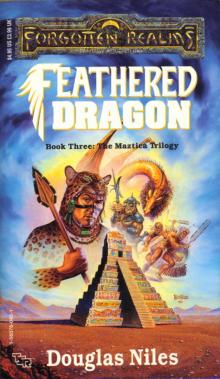 Feathered Dragon mt-3
Feathered Dragon mt-3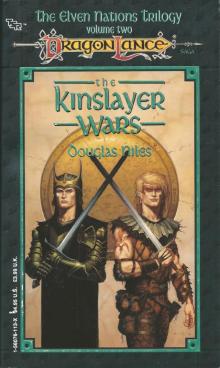 The Kinslayer Wars
The Kinslayer Wars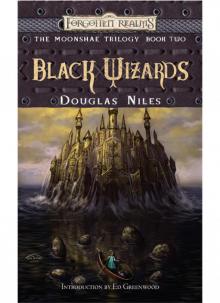 Black Wizards
Black Wizards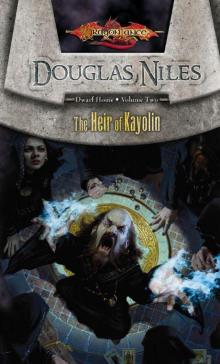 The Heir of Kayolin dh-2
The Heir of Kayolin dh-2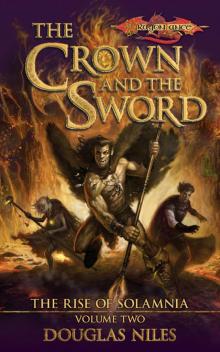 The Crown and the Sword tros-2
The Crown and the Sword tros-2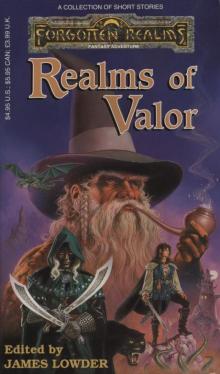 Realms of Valor a-1
Realms of Valor a-1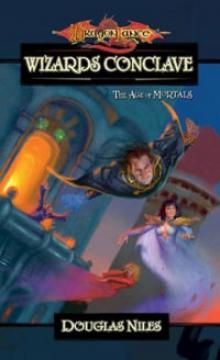 Wizards Conclave aom-5
Wizards Conclave aom-5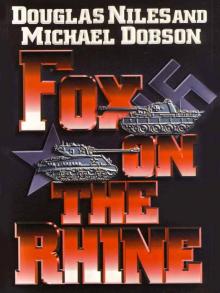 Fox On The Rhine
Fox On The Rhine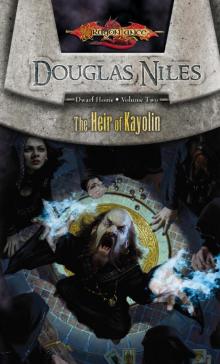 The Heir of Kayolin
The Heir of Kayolin Fox at the Front (Fox on the Rhine)
Fox at the Front (Fox on the Rhine)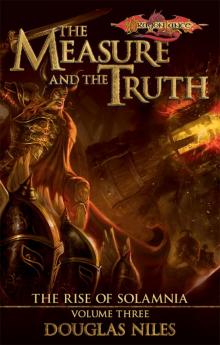 Measure and the Truth tros-3
Measure and the Truth tros-3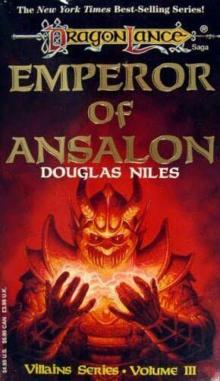 Emperor of Ansalon (d-3)
Emperor of Ansalon (d-3)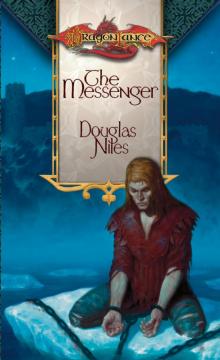 The Messenger it-1
The Messenger it-1 The Druid Queen tdt-3
The Druid Queen tdt-3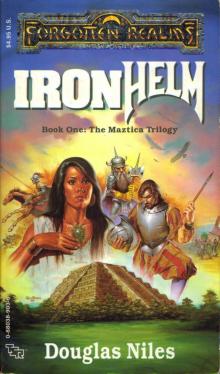 Ironhelm mt-1
Ironhelm mt-1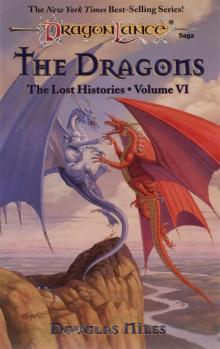 The Dragons lh-6
The Dragons lh-6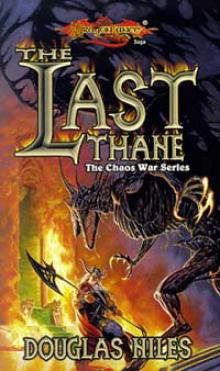 The Last Thane cw-1
The Last Thane cw-1 Circle at center sc-1
Circle at center sc-1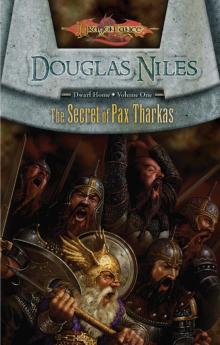 Secret of Pax Tharkas dh-1
Secret of Pax Tharkas dh-1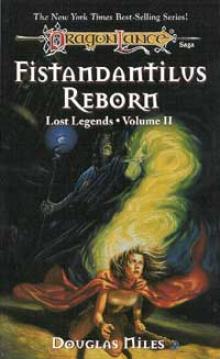 Fistanadantilus Reborn ll-2
Fistanadantilus Reborn ll-2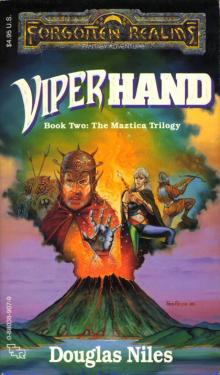 Viperhand mt-2
Viperhand mt-2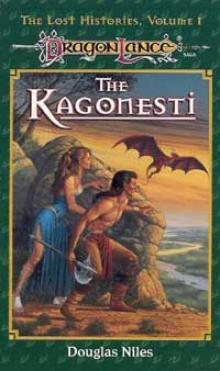 Kagonesti lh-1
Kagonesti lh-1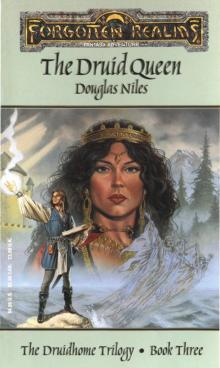 The Druid Queen
The Druid Queen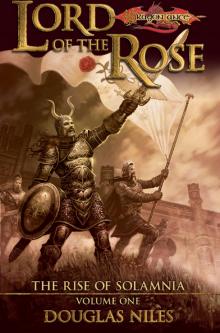 Lord of the Rose tros-1
Lord of the Rose tros-1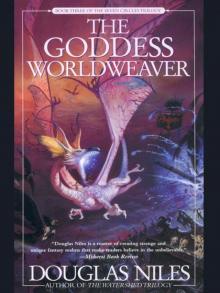 Goddess Worldweaver sc-3
Goddess Worldweaver sc-3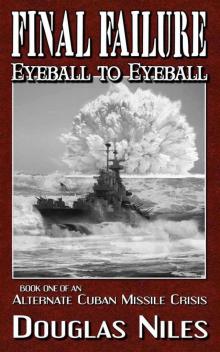 Eyeball to Eyeball (Final Failure)
Eyeball to Eyeball (Final Failure)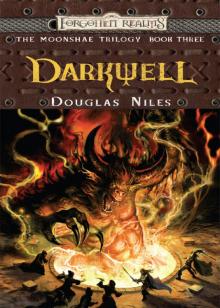 Darkwell
Darkwell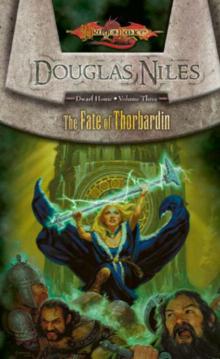 Fate of Thorbardin dh-3
Fate of Thorbardin dh-3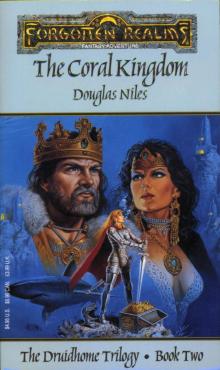 The Coral Kingdom tdt-2
The Coral Kingdom tdt-2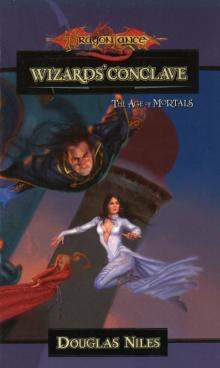 Wizard's Conclave
Wizard's Conclave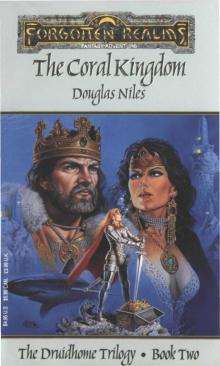 The Coral Kingdom
The Coral Kingdom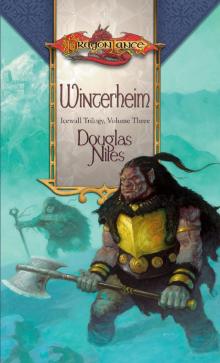 Winterheim it-3
Winterheim it-3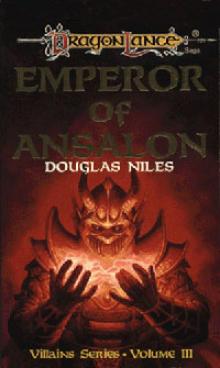 Emperor of Ansalon v-3
Emperor of Ansalon v-3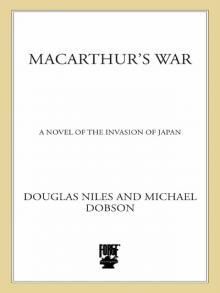 MacArthur's War: A Novel of the Invasion of Japan
MacArthur's War: A Novel of the Invasion of Japan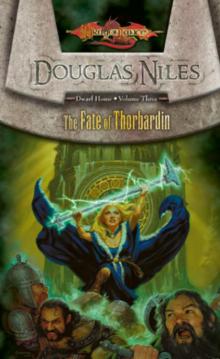 The Fate of Thorbardin
The Fate of Thorbardin The Rod of Seven Parts
The Rod of Seven Parts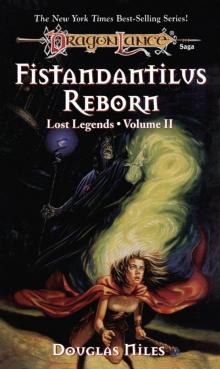 Fistandantilus Reborn
Fistandantilus Reborn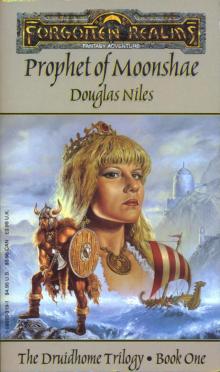 Prophet of Moonshae tdt-1
Prophet of Moonshae tdt-1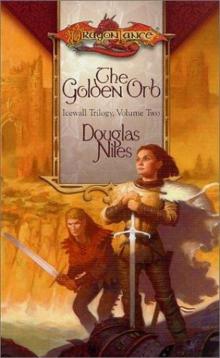 The Golden Orb i-2
The Golden Orb i-2